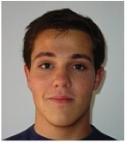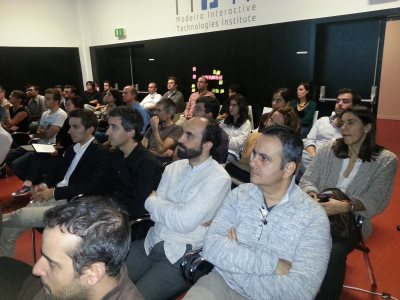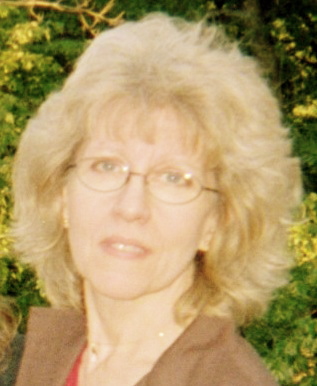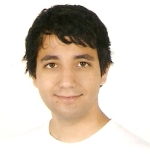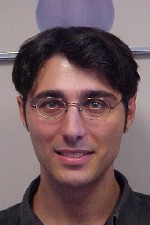Bernardo Toninho, Ph.D. Candidate in Computer Science:
“Being a Teaching Assistant was a Tremendously Satisfying Experience”
Enrolled at the Faculdade de CIências e Tecnologia of the Universidade Nova de Lisboa (FCT/UNL) and Carnegie Mellon University (CMU) since 2009/2010, Bernardo Toninho positions his research “at the intersection of proof theory or logic and concurrency theory, mainly focusing on developing a logical foundation for the study and development of concurrent systems.” His research applies concepts from logic to the study and analysis of concurrent interactive systems, of which “common examples include web services such as Amazon, Google, etc.,” he explains.
During his studies, he has been working closely with his advisors Luís Caires, faculty member at the FCT/UNL, and Frank Pfenning, head of the Computer Science Department at CMU, which has been “extremely helpful to have such breadth and depth of experience available.”
During his Ph.D., Bernardo Toninho has already published with his advisors, as well as completed the Teaching Assistant requirement of the CMU portion of the program, which was “a tremendously satisfying experience.”
“A logical foundation for session-based concurrent computation,” is the title of the dissertation proposal that Bernardo Toninho expects to defend “sometime mid/late January 2014, or early February at the latest.” After he finishes is Ph.D. until the end of the year, he is confident that several interesting career opportunities will open up for him.
CMU Portugal: How has been your experience in the Program so far?
Bernardo Toninho [BT]: I spent my first semester in the Program at FCT/UNL, because I had to defend my Masters’ thesis. I then spent two contiguous years at CMU, which gave me the chance to fully experience the culture and the environment of CMU (and U.S. research universities in general). Beyond the more superficial cultural differences, the research environment is particularly conducive to producing great work for multiple reasons. The facilities and tools available are all “state of the art,” but the most important and harder to replicate factor, when compared to the Portuguese universities, is the critical mass of people. The sheer number of Ph.D. students and professors in general make for a great diversity of research interests, larger research groups for each specific (sub) field, and it becomes very easy to run into someone in the hall that wants to share an interesting idea or is willing to listen to yours. There is also a greater focus on Ph.D. students overall, that crosscuts the departments and the university, which is fairly uncommon in Portugal.
CMU Portugal: What other differences can you identify when comparing Portuguese universities and CMU?
BT: The focus on classes is very different from the Portuguese (and European) Ph.D. cultural style. Classes are challenging and time consuming, but I think in the end they become a great asset. On one hand, they enable interaction between Ph.D. students that wouldn’t generally interact with each other simply because they work on completely different areas of Computer Science. On the other hand, they expose you to the “state of the art” of each research field, which is of the highest importance from a scientific culture point of view, and put the students in a position where they can potentially apply their domain-specific knowledge to different contexts. The Teaching Assistant (TA) requirement of the CMU portion of the program, requiring each Ph.D. student to TA a graduate class is also a tremendously satisfying experience.
CMU Portugal: During your doctoral studies you have been co-advised by two faculty members. Is it complex?
BT: Working with two advisors can often be challenging, especially when they live in different continents, but my experience has been nothing but positive. Both Luís and Frank provide very different perspectives on each research topic we address, and while it is sometimes challenging to combine the two perspectives, it is always extremely helpful to have such breadth and depth of experience available to me. While I prefer a more hands-off advisory style, which is very much compatible with my advisory setup, I have regular meetings (videoconference or in person) with both my advisors, which is a good way of keeping a continuous discussion and moving forward with the research.
“My research applies concepts from logic (more precisely, proof theory) to the study and analysis of concurrent interactive systems”
CMU Portugal: Can you give us an overview of your research?
BT: My research applies concepts from logic (more precisely, proof theory) to the study and analysis of concurrent interactive systems, that is, logically and physically independent systems that coordinate with each other through communication to perform certain tasks. Common examples include web services such as Amazon, Google, etc. The development of such systems is particularly error prone and their theory is usually very complex. By applying well-known ideas from logic to this seemingly unrelated area, we can develop a clean and systematic account of several phenomena that are common in this setting.
CMU Portugal: How do you position your research?
BT: My research lives at the intersection of proof theory or logic and concurrency theory, mainly focusing on developing a logical foundation for the study and development of concurrent systems. While my work is mostly of a theoretical nature, it has relevant practical implications, given that it provides us with tools and frameworks that allow for a better understanding of concurrent interactive systems.
CMU Portugal: During your Ph.D. you have been working with the INTERFACES project, in the scope of the CMU Portugal Program. What were the most important learning points from your participation in this research project?
BT: The research in INTERFACES is quite varied, ranging from the more theoretical foundational work to industry-oriented research. My research leans towards the foundational aspects of INTERFACES, but the most interesting aspect of the project is seeing how our more theoretical ideas can also be adapted to fit an industrial setting.
INTERFACES “the most interesting aspect of the project is seeing how our more theoretical ideas can also be adapted to fit an industrial setting”
CMU Portugal: How do you see yourself in the future, after concluding your Ph.D.?
BT: I really enjoy doing research, so I would definitely like to work in a research laboratory or a university. I mostly lean towards an academic setting since I also enjoy the teaching aspects of the work, but I see myself as having several interesting opportunities when I conclude my Ph.D..
December 2013


